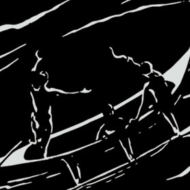
This workshop brought together eminent Australian and South African poets and critics to consider how poets in societies with a white settler history think about their world through their poetry making. The subject is not white settler colonialism as a theme in poems, but as a limiting circumstance within which poets are concerned to develop particular idioms and techniques. How does this particular form of colonialism condition the aspiration to articulate truth in verse? What are the problems and politics of poetic craft generated by the settlement process and its aftermath? By comparing Australia and South Africa, we hope to avoid discussion of national ‘characteristics’, but, at the same time, to head off easy generalisations about postcolonialism or transnationalism. Our attention is on poetry’s material, approached in its regional specificity and through parallels in technical problems encountered during the global colonial expansion and its aftermath.
13 September 2013
Session I
Jarad Zimbler : Guy Butler Reconsidered: Poetics and Poetry in the South African Literary Field
Respondents: Tony Voss and Sam Moginie
Session II
Michael Farrell: Craft: An Unsettled Concept
Respondents: Peter Minter and Robert Wood
14 September 2013
Session III
Ingrid de Kok: “Why still imagine whole words, whole worlds?” Between Parts of Speech and Body Parts.
Respondents: John Mateer and Kate Middleton
Session IV
Ann Vickery : Against Colony Collapse Disorder; or, Settler Mess in the Cells of Australian Poetry
Respondents: Astrid Lorange and Rory Dufficy
Related Posts

Jarad Zimbler: Guy Butler Reconsidered
In the aftermath of his confrontation with Mike Kirkwood at Poetry ’74, a conference hosted by the Centre for Extra-Mural Studies at UCT, Guy Butler seems to have diminished in stature from year to year.

Tony Voss in response to Jarad Zimbler
I want to propose that in the colonial situation the colonising poet associates herself or himself with ars and the colonised poet with ingenium.

Sam Moginie in response to Jarad Zimbler
This response wagers that Butler’s poetics might be read productively in the light of two interventions in Australian poetics: Rex Ingamels’s ‘Conditional Culture’ (1938) and A.D. Hope’s ‘The Discursive Mode’ (1956/7).

Michael Farrell: Craft: An Unsettled Concept
My paper looks at four different kinds of ‘craft’, in the context of white settlement and Australian poetry, with examples of issues and poems for each. The writing issues I attend to are: noun use and abuse; narration; the end of a poem; positive and negative space.

Peter Minter in response to Michael Farrell
I will raise some thoughts on mobile craft, suggesting transcultural alignments between Charles Olson’s projectivism and 1970s Papunya desert art, and brooding on ecopoetic form.

Private: Robert Wood in response to Michael Farrell
My response will extend Farrell’s unsettling of notions of craft and settler poetics by considering native title testimony. I look at an excerpt of Daniel vs State of Western Australia; a case involving the Ngarlum a – Yindjibarndi people of the Western Pilbara in Western Australia.

Ingrid de Kok: “Why still imagine whole words, whole worlds?”
This presentation will engage with a range of compositional and ethical issues which confronted me as a poet – consciously and unconsciously – in a sequence of poems dealing with South Africa’s Truth and Reconciliation Commission.

John Mateer in response to Ingrid de Kok
As someone for whom the Truth and Reconciliation Commission was a deep insight into the past I share with other South Africans, among them “ex – whites”, it was a linguistic operation, too, a recovery.

Kate Middleton in response to Ingrid de Kok
I wish to address the language of settlement as influenced by the narratives of the European “discoverers” and explorers. In doing so, I will look specifically at the selectivity of language,

Ann Vickery: Against Colony Collapse Disorder
Colony collapse disorder describes a phenomenon whereby worker bees have suddenly and inexplicably disappeared from a hive. It has also been mobilised as a syndrome following the rapid vanishing of Western honeybee colonies across North America and Europe. Justin Clemens has also used the term to describe aesthetic collapse, whereby poets can only demonstrate their existence as “being caught dead” given the fragile conditions of poetry and the inevitable, deadly effects of the past.

Astrid Lorange in response to Ann Vickery
Following on associatively from Vickery’s provocations, I will be looking at models for alternative kinships and affinities…

Rory Dufficy in response to Ann Vickery
Moving laterally from Vickery’s initial gambit, I will look to explore the conditions from which ‘colony collapse’ might be understood as Clemen’s “being caught dead”.
An initiative of Western Sydney University










